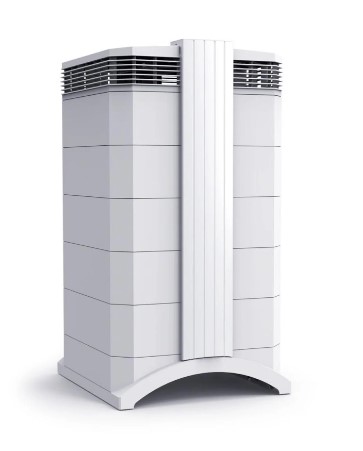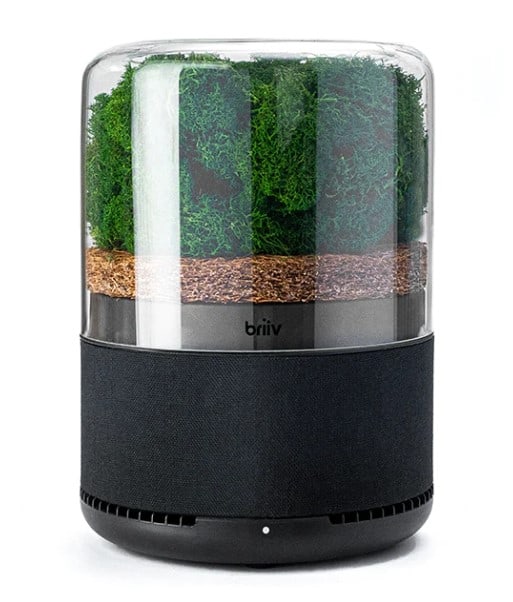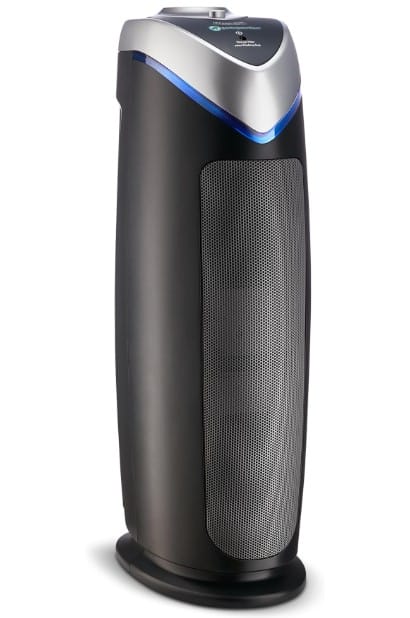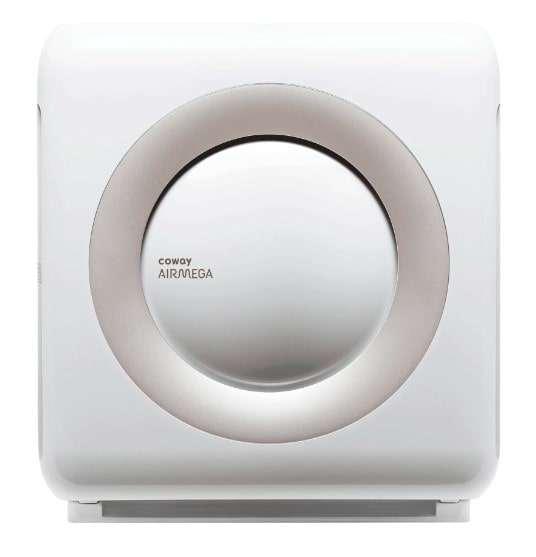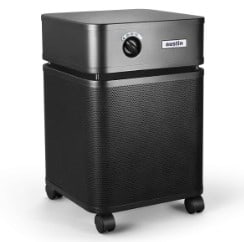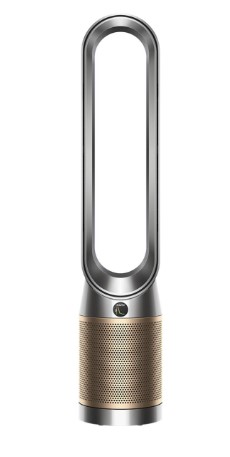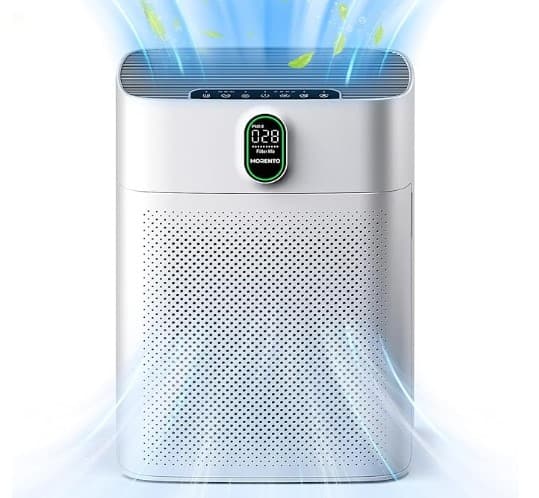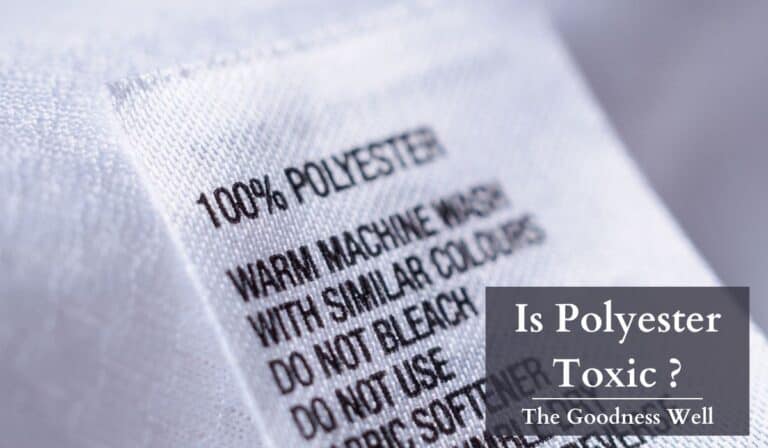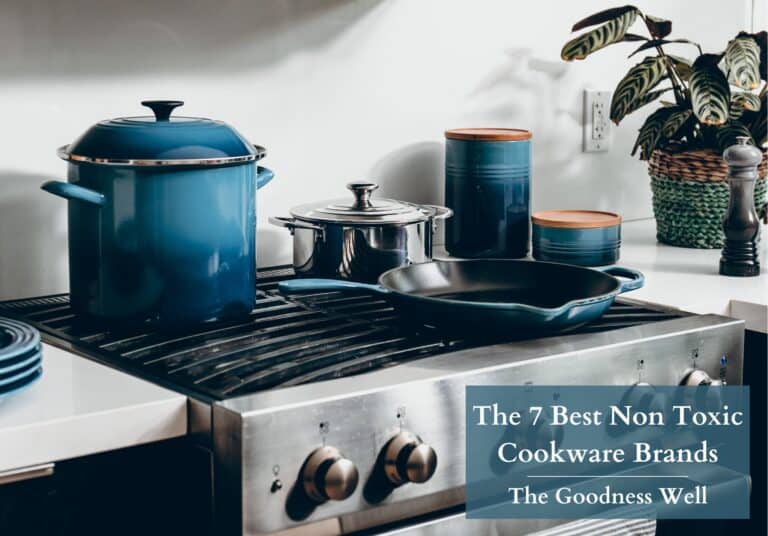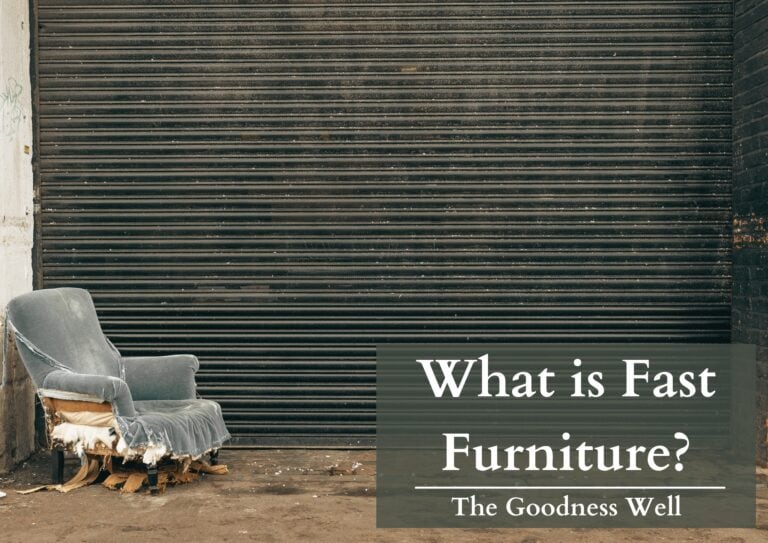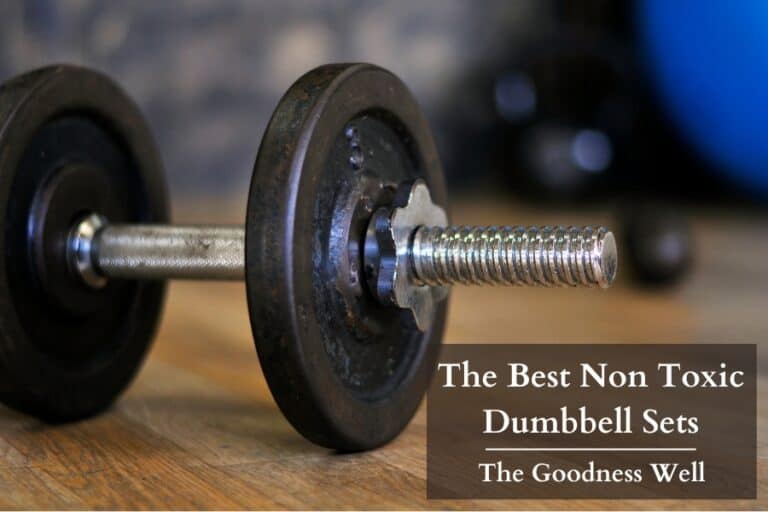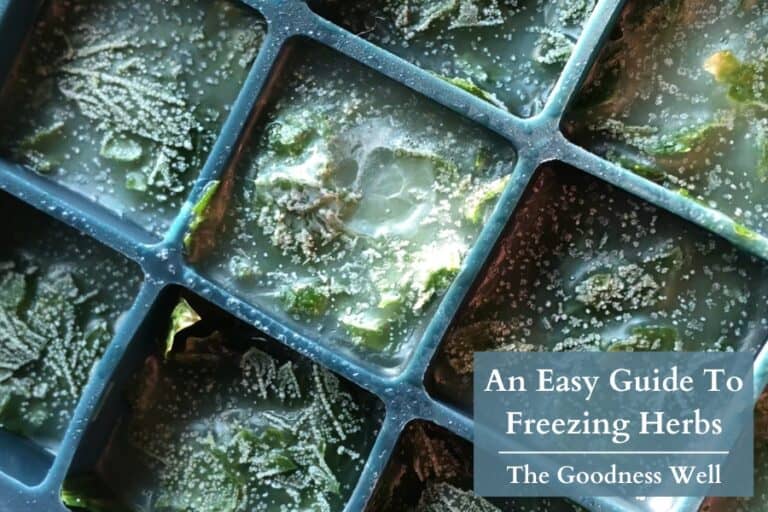The 7 Best Air Purifiers For A Non-Toxic Home
From a family who’s suffered from allergies all their life, from pet dander to sinus infections triggered by season changes, I know the importance of having clean home air all too well.
On top of that, the EPA studies found that common pollutants are 2-5x higher inside homes than outside.
So, it’s no wonder that getting an air purifier seems more like a necessity than a luxury, as it’s one of the most effective ways to purify your home’s air.
So we did some deep digging across Amazon reviews, Reddit forums, and Google reviews to put together a list of the 7 best air purifiers on the market to keep your air clean, and even include a couple of eco-friendly options!
Let’s get into it.
TL;DR
The 7 Best Air Purifiers for a Non Toxic Home are:
- IQAir HealthPro Plus Air Purifier- Best Overall
- Briiv Air Filter – Most Eco Friendly
- GermGuardian Air Purifier – Most Affordable/2nd Best for Germs
- Coway Airmega – Most Cost-Efficient
- Austin Air Healthmate Plus – Most Powerful/Best for Gerns
- Dyson Purifier – Best for Off-Gassing
- MORENTO Air Purifiers – Best for Pets/Allergies
We are reader-supported. So some links in this post may be affiliate links, which means we may earn a small commission if you make a purchase. Learn more
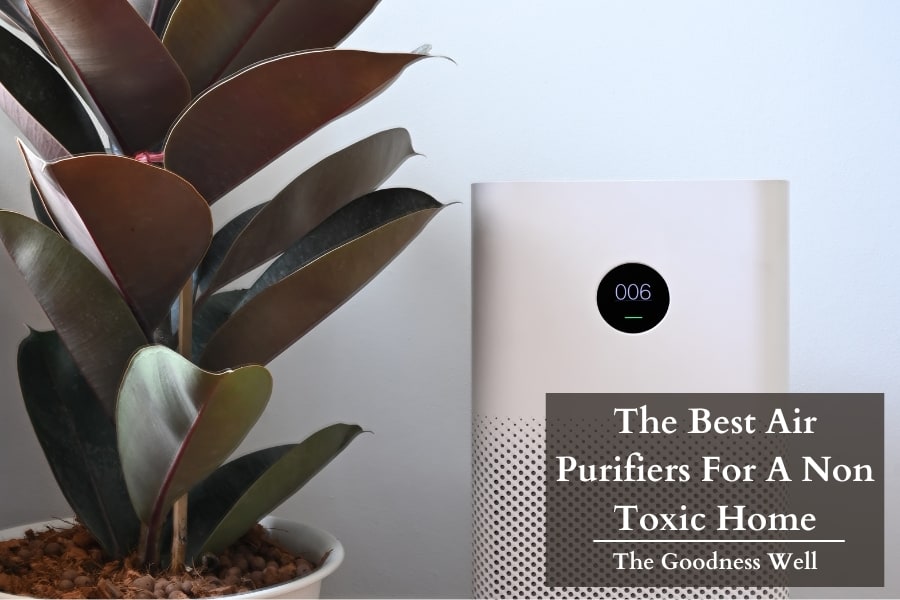
A Few Things to Know
Room Size Reference Guide
Most of these air purifiers do well on pretty much any room size, but here’s a reference guide to be sure.
- Small Room: Up to 200 sq. ft.
- Personal spaces, small bedrooms, or office cubicles.
- Medium Room: 201 to 400 sq. ft.
- Average-sized bedrooms, living rooms, and dining areas.
- Large Room: 401 to 600 sq. ft.
- Larger living spaces, open floor plans, and master bedrooms.
- Extra-Large Room: 601 sq. ft. and above
- Expansive open spaces, basements, and commercial settings.
“Washable Filters”
Pre-filters: Most air purifiers come with pre-filters that catch larger particles like hair, dust, and pet dander before the air goes through the finer main filters. These pre-filters are often marketed as “washable” or “permanent,” meaning they can be cleaned and reused rather than replaced. However, not all pre-filters are washable, so be sure to check the manufacturer’s instructions.
Main Filters (HEPA and Carbon Filters): The main filters, like HEPA (High-Efficiency Particulate Air) filters and activated carbon filters, are not washable. Washing these filters can damage their structure and reduce their effectiveness. Therefore, when they reach the end of their lifespan, which varies by manufacturer, they need to be replaced.
So to clarify, there aren’t any air filters that have only one filter that can be washed and then reused. There are always at least two filters, the pre-filter (which can sometimes be washed and reused- although none in this article are) and then the main filter (HEPA, Carbon) which can not be reused, it must be replaced.
“Radiation” or Ozone Concerns
Some air purifiers use a technology called ionization, which can produce ozone as a byproduct. Ozone, in high levels, can be toxic to health, especially for our lungs. To avoid this, choose air purifiers that are CARB and/or AAFA certified which ensure that they meet strict safety standards and do not emit harmful levels of ozone.
Models with HEPA filters or activated carbon filters are safe choices, as they do not produce ozone or involve ionization.
The 7 Best Air Purifiers
1. IQAir HealthPro Plus Air Purifier– Best Overall
Backed by consumer reports, Reddit users, and Amazon reviews, this is the #1 best overall Air Purifier out there.
Not only is it medical grade, but it’s even eco friendly due to its long filter lifespan and Energy Star Certification which reduces waste and energy in the long run.
It uses a combination of three filters to get rid of airborne particles up to 1125 sq ft, including a HyperHEPA filter that can remove particles as small as 0.003 microns.
*Keep in mind this comes with 3 filters in it, of which none are washable.
Here is the filter lifespans:
- PreMax Filter: 18 months
- V5 Cell Filter: 2 years
- HyperHEPA Filter: 4 years and 2 months
Product Highlights:
- Price: $899.00
- Medical Grade H13 HyperHEPA Filter: Removes 99.995% of airborne particles including Viruses, Bacteria, Allergens, Asthma Triggers, Smoke, Mold, Pets, Dust, Odor
- CARB Certified
- Pre-Filter: Traps large particles like dust and pet hair.
- Runs quietly: It runs quietly
- Energy Star certified: Save on your electric bills!
- 10-year Warranty
- Downside: Very pricey and requires replacement of 3 filters
2. Briiv Air Purifier
This plastic-free air purifier (they do use biodegradable bioplastic) by Briiv is the most eco-friendly and sustainable choice for purifying indoor air.
Instead of the usual materials, it uses natural, non toxic materials like moss, coconut, and activated carbon to clean the air.
It runs on just a 5v USB plug, and most of the product can be composted or recycled! Pretty cool I’d say!
Product Highlights:
- Price: $357.80
- Natural: Moss, and coconut fiber filter.
- Sustainable: Most of the components can be composted or recycled, their packaging is from recycled materials, and they plant one tree for every one sold.
- Safe: Does not use ionization or emit ozone
- Warranty: 2 years
- Filters: Comes with 12 months worth of filters. Whole filter set lasts about 1 year and costs about $68. Filters not washable
- Energy-efficient: Running on just a 5v USB connection.
- Downside: Limited coverage area.
3. GermGuardian Air Purifier
If you’re looking for the most affordable (but high-quality) option, this one is the way to go.
This air purifier from GermGuardian uses a HEPA filter to trap particles like germs, odors, and allergens down to 0.3 microns in size to keep your air toxin free. It’s also CARB and Zero Ozone certified, so it’s as safe as can be.
It’s quiet, powerful for medium to large rooms, and has a nightlight mode.
We also love that it’s engineered and designed right here in the USA!
Product Highlights:
- Price: $79.99
- HEPA 13 filter: Captures 99.97% of airborne particles down to 0.3 microns in size.
- Pre-filter: Traps larger particles like dust, pet hair, and lint.
- Activated carbon filter: Reduces odors caused by smoke, cooking, and pets.
- UV-C light: Helps kill airborne bacteria and viruses.
- Certified: Energy Star and Zero Ozone Certified, CARB and RoHS Compliant
- Engineered and Designed in Ohio, USA
- Downside: Filters ($35) are expensive (compared to price of product) and need replacement every 6 months. The filters are not washable
4. Coway Airmega
This Coway Airmega purifier is highly rated on Amazon, by Reddit users, and in Consumer Reports.
It uses a four-stage filtration system to remove 99.97% of particles that can cover spaces up to 1,748 square feet
The feature we love the most is its “Eco-Mode” which automatically adjusts the fan speed based on the air quality. This not only saves energy but saves on time to replacing filters as well. You can also use the timer to set it to turn on or off at certain times.
Customers also say the controls are user friendly!
Product Highlights:
- Price: $151.47 on Amazon, $189 at Coway
- True HEPA Filter: Removes 99.97% of airborne particles down to 0.3 microns in size
- Eco Mode: Energy Star certified and automatically adjusts the fan speed based on the air quality.
- Air Quality Indicator: Shows the level of air pollution in the room
- Timer: Set the air purifier to turn on or off at specific times
- Filter indicator: Lets you know when it’s time to replace the filters
- Safe: Uses Ionization but is CARB certified
- Downside: Filters might need replacement sooner in homes with more polluted air
5. Austin Air Healthmate Plus
Although this one is high priced, customer reviews say it’s more than worth it.
It uses a medical grade HEPA filter that traps 99% of bacteria and viruses as small as 0.1 microns.
The power of this one tackles a wide range of gases, chemicals, and allergens, making it ideal for those with allergies or sensitivities, as well as those living in areas with wildfires.
This one also has the longest lasting filter of this list, only needing replacement every 5 years!
Product Highlights:
- Price: $855
- Medical Grade HEPA filter: Removes 99.97% of airborne particles.
- Activated Carbon: Removes VOCs, formaldehyde, benzenes, chemicals, gases.
- Pre-filter with Odor and Gas Control: Traps larger particles like dust, pet hair, and lint.
- Long lasting filter: Only needs replacement every 5 years
- No Ionization: Does not use ionization technology or produce ozone
- Warranty: 5-Year Mechanical Warranty
- Downside: Pricey and is not backed by certifications
6. Dyson Purifier Cool Formaldehyde™
This is another solid option when it comes to powerful air purifiers
It can automatically sense, capture, and trap pollutants, even ones like formaldehyde, which can be high in certain homes, especially new ones. It’s perfect for off-gassing items like new furniture.
It has a HEPA filtration system combined with activated carbon to remove gas, odors, and 99.97% of particles as small as 0.3 microns.
We also love the sleek design, reducing the need for a bulky machine with too much plastic.
While it’s backed by an Energy Star certification, it is not CARB certified. However, it does not appear to use ionization.
Product Highlights:
- Price: $632 on Amazon, $599.99 at Dyson
- Replacement Filter Cost:
- Filtration: HEPA filter and activated carbon removes gas, odors, and formaldehyde. Filter is $80 and will need replacing about once a year
- Square Foot Coverage: 999 Square Feet
- Convenient: Remote, app, and voice control for easy operation.
- Night mode: Has a quiet mode setting with a dimmed display.
- Warranty: 2 years & a 30 day return policy
- Downside: Not backed by CARB certification (but does not appear to use ionization)
7. MORENTO Air Purifiers
Got Pets?
Last but not least, this Morento air purifier is another affordable option that uses dual side air intake which is great for large rooms and tackling pet air and dander up to 1076 sq ft.
It comes with an air quality sensor that automatically adjusts fan speed depending on the air quality, which saves on energy and replacement filters!
We especially love how it’s backed by all the certifications like CARB, ETL, EPA, and FCC and also removes 99.97% of particles as small as 0.3 microns.
Product Highlights:
- Price: $129.99
- H13 True HEPA Filter: Removes 99.97% of airborne particles.
- PM2.5 Display and Air Quality Sensor: Tracks PM2.5 particles & displays air quality.
- Double-sided air inlet: Improves purification efficiency.
- Quiet operation: Operates at a noise level as low as 24 decibels.
- Coverage area: Up to 1,076 square feet
- Safe: CARB certified
- Downside: This is great for bedrooms, but frequent filter changes are needed for rooms with heavy pet hair.
FAQ
Doctors recommend air purifiers that use HEPA filters, as these are very effective at capturing airborne particles like dust, pollen, pet dander, and mold spores. Air purifiers with carbon filters are also effective at removing odors and harmful gases from the air.
Some air purifiers can produce ozone as a byproduct which is toxic at high levels. To avoid this, choose air filters that either don’t use ionization or are CARB-certified, which ensures no harmful levels of ozone are produced.
Yes, studies show air purifiers effectively improve indoor air quality by removing airborne particles like allergens and pollutants, which can improve health.
The number of air purifiers you need depends on factors like home size, layout, and your specific air quality concerns. In general, it’s recommended to have at least one air purifier for each room you spend a significant amount of time like bedrooms or living areas. However, a more powerful air purifier can effectively clean the air in large living spaces.
Place your air purifier in the room where you spend most of your time such as the bedroom or living room and be sure to position it away from walls and furniture for optimal airflow. Also, avoid placing it in direct sunlight or near sources of heat and moisture as this can affect performance.
Thanks for reading! Check out some of our other posts below!

